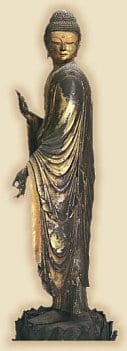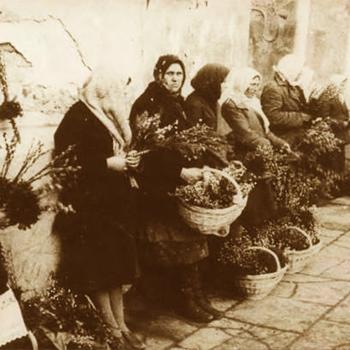This year, 2020, our national American Thanksgiving holiday falls on the 26th of November.
In some ways a propitious date. It is actually the anniversary for our first national day of Thanksgiving, proclaimed by President George Washington in 1789. It might be worth noting it was not connected to the Pilgrim story. When Thomas Jefferson became president, he chose not to continue the proclamation and as a national holiday Thanksgiving was only sporadically observed in subsequent years.
In 1863 Abraham Lincoln proclaimed a regular Thanksgiving holiday to be observed on the last Thursday in November. In 1885 it became an official Federal holiday. It wasn’t until 1942 that the fourth Thursday in November was enshrined into law.
At least throughout my adult life I’ve found this holiday complicated. On the one hand a worthy thing, a time simply to celebrate the goodness of life, to just be thankful. But on the other, attached to an extremely problematic story. For many native Americans and those sympathetic to their plight this day has become a national day of mourning.
For me these two things are inextricable linked. Sometimes the good is an endless unfolding. As has been said, if your only prayer is ‘Thank you,” it will be enough. And, there are a lot of zero sum things going on. One people’s blessing is another people’s curse. Our American culture, as wondrous as it is in many ways, is also built upon piles of bones. The genocide of Native Americans, and, how can we forget the other original sin, an economy built upon chattel slavery?
Good and ill woven fine.
And, this reminds me of that case from the Blue Cliff Record about every day and good days. I was going through my files and see how I connected this case to this holiday a few years ago. And I think it natural enough. It’s collected at the 6th case in the ancient Chinese anthology, the Blue Cliff Record.
“Yunmen asked his assembly, ‘I don’t ask you about before the 15th of the month. Tell me something about after the 15th.’ No one spoke, so he responded himself, ‘Every day is a good day.’”
This isn’t a complete non sequitur. The 15th is the time of the full moon, and is a common metaphor in East Asia for the moment of awakening. So, there’s that. Also, it probably doesn’t hurt to note that Yunmen lived in harsh, politically unstable times, where armies were on the march and famine and hunger and danger the common currency of the day.
So it would be very hard to find the phrase “every day is a good day” as meaning “don’t worry, be happy.” This good day carries with it the possibility of ending very badly. It wasn’t all that different than this day of complicated Thanksgiving, with hungry men and women and children standing in the shadows.
In some communities of the Zen tradition people who’ve been acknowledged as teachers, after a ceremony that takes place in private at midnight, the next day they’re often expected to give a talk on this koan.
Koans. A koan is a statement about reality, and is an invitation into presence. Or, another way to say it, a koan is a pointer to the real, the deepest real, and with that an invitation to come and stand in that place.
And here we are. A very problematic story attached to a communal call to give thanks for what is good. A terrible memory of the possibility of evil, and its actual manifestations. And the sense of powerlessness while also wishing for some reconciliation among people and this little planet upon which we live and breath and from which we take our being.
The problem, it seems to me, it is the calling of the tradition to which I’ve given my life: the problem lies with our sense of separation.
And the solution, at least within our Zen world, is said to be rooted in not turning away, in the practice of presence. Presence to Thanksgiving. Presence to the betrayals upon which many a feast is founded. Presence to political chaos and even the possibility of the unraveling of this republic. Presence to hunger. Presence to questions of why. Presence to our own hearts.
Presence.
This is most important. It is within presence we find our awakening, our waking up from the slumber of a life that has been distracted from the most important matters. We slumber with our apparently endless desires. We slumber with our anger and hatred. We slumber as we figure something out as true and defend, fiercely that idea of that true, sometimes even to the death. Sometimes our own, too often someone else’s.
Waking up is waking up from all this grasping at wanting and resenting and hating, and knowing for sure, into something else. And, and this is most important: this waking up is also our common human experience. Here the action and the questions collapse into one thing.
And what does that look like?
Well, I suggest we can find a hint of the way forward in another koan in that same Twelfth century anthology, the Blue Cliff Record, this time in case 89.
Yunyan asked Daowu, ‘How does the Bodhisattva Guanyin use those many hands and eyes?’ Daowu answered, ‘It is like someone in the middle of the night reaching behind her head for the pillow.’ Yunyan said, ‘I understand.’ Daowu asked, ‘How do you understand it?’ Yunyan said, ‘All over the body are hands and eyes.’ Daowu said, ‘That is very well expressed, but it is only eight-tenths of the answer.’ Yunyan said, ‘How would you say it, Elder Brother?’ Daowu said, ‘Throughout the body are hands and eyes.’
Both Yunyan and Daowu were students of the same teacher and would themselves each become famous teachers. According to some traditions they were actually brothers, but for various reasons this seems unlikely. More interesting to me is how Zen is organized in lineages; that is my teacher had a teacher who had a teacher, in a line that historically goes to early medieval China and mythically all the way back to the Buddha. For me a really interesting thing is how Yunyan is my teacher’s teacher’s teacher in an unbroken line running from my life back to the beginning of the ninth century.
But the really important thing for us is that both these monks had their ideas of self and other collapse and saw deeply into authentic interconnectedness. At the time this story takes place Daowu perhaps sees a bit deeper than his dharma brother. Although perhaps not. In the great way we play a lot, each of us taking different parts in turn, and play is in fact one of the primary spiritual disciplines. That noted, in this conversation we get a sense of what it means to move from the interdependent web as a really good idea, to where it describes who we actually are.
Here Thanksgiving. False thanksgiving. Hunger. Hurt. Joy. Gratitude. Actions, small and great. Wanting something better. Acting on that. All of it. Reaching out, reaching out knowing we’re all in this together.
Reaching out is the body of awakening.
Reaching out to the beggar and finding Buddha, finding Christ, finding our true selves…
And Daowu says of this need to act, that it comes not through an interpretation of the image of the interdependent web, not through reading the Wealth of Nations, not through solid Marxist analysis, not actually through an investigation of Mary’s hymn in the Gospel According to Luke (And, yes, I do believe Mary is Guanyin and that Guanyin is Mary), not through righteousness of any sort, certainly not righteous anger, a dreadful seducer beckoning us to a confusion of ends and means: but rather like someone turning in her sleep and reaching a hand behind her head to adjust her pillow.
Just this. Ends and means, one thing; our interdependence and you and I, one thing.
It becomes our broken song. It acknowledges fully and without hesitation the cracks in everything. It remembers the call to thanksgiving, and missing it at the very same time. It recalls the horrors of days. And endless failures. And it sees something else. In the very same place. At the very same time.
The meeting of the month before and after the fifteenth. And with that the light that shines through those wounds. The promise of our saving ourselves and each other.
A real Thanksgiving.













